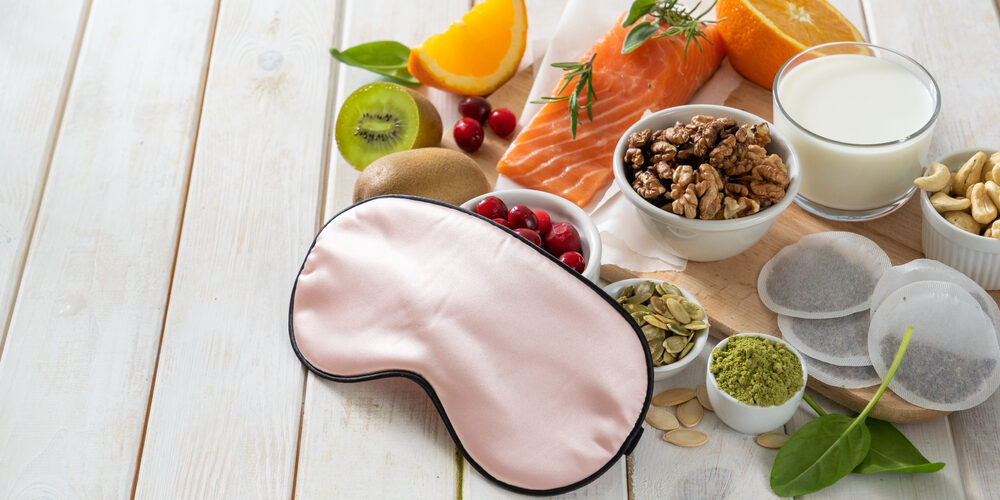Nutrition in Sleep and Self-Care: How Your Diet Influences Rest and Well-Being
Learning about Nutrition in Sleep and Self-Care? A well-balanced diet is crucial not only for maintaining physical health but also for promoting optimal sleep and self-care. In this article, we’ll discuss the impact of nutrition on sleep quality, mood, and overall well-being, and suggest some sleep-promoting foods and beverages you can incorporate into your daily routine.
-
The Connection Between Diet and Sleep
The food you consume affects your body’s production of hormones and neurotransmitters, such as melatonin and serotonin, which play a significant role in regulating sleep. A diet rich in nutrients like magnesium, tryptophan, and complex carbohydrates can improve sleep quality and help you feel more relaxed and rejuvenated.
-
Foods That Promote Sleep
Incorporating the following sleep-promoting foods into your diet can positively impact your sleep patterns:
- Almonds and walnuts: These nuts are rich in magnesium and melatonin, which help relax muscles and regulate sleep.
- Tart cherry juice: High in melatonin, tart cherry juice has been shown to improve sleep quality and duration.
- Whole grains: Complex carbohydrates found in whole grains, such as brown rice and quinoa, encourage the production of serotonin, which helps you relax and sleep better.
- Fatty fish: Rich in omega-3 fatty acids and vitamin D, fatty fish like salmon and mackerel can enhance serotonin production and promote better sleep.
- Bananas: High in magnesium and potassium, bananas can help relax muscles and improve sleep quality.
-
Beverages for Better Sleep
The following beverages can also help improve sleep:
- Herbal tea: Sipping on a cup of chamomile, valerian root, or passionflower tea can help calm the mind and promote relaxation before bedtime.
- Warm milk: A classic sleep-inducing beverage, warm milk contains tryptophan, which helps the body produce melatonin and serotonin for better sleep.
-
Foods to Avoid for Better Sleep
Limiting or avoiding certain foods and beverages can also improve your sleep quality:
- Caffeine: Found in coffee, tea, and chocolate, caffeine is a stimulant that can interfere with your ability to fall asleep and stay asleep. Aim to avoid caffeine several hours before bedtime.
- Alcohol: While alcohol may help you fall asleep initially, it can disrupt your sleep cycles and lead to poorer sleep quality.
- Spicy and high-fat foods: Consuming spicy or high-fat meals close to bedtime can cause indigestion and heartburn, making it harder to fall asleep.
-
Mindful Eating and Self-Care
Practicing mindful eating is an essential aspect of self-care. By paying attention to your body’s hunger and fullness signals, you can ensure that you’re consuming the right amount of nourishment and avoid overeating or undereating. Additionally, incorporating relaxation techniques like meditation or deep breathing exercises can help create a sense of calm and balance in your daily routine.
In conclusion, understanding the role of nutrition in sleep and self-care is vital for promoting overall well-being. By incorporating sleep-promoting foods and beverages into your diet and practicing mindful eating, you can enhance your sleep quality and embrace a more balanced, self-caring lifestyle. To learn more about self-care, sleep, and wellness, explore Reposé’s range of products and visit our blog for more resources.
External sources:








